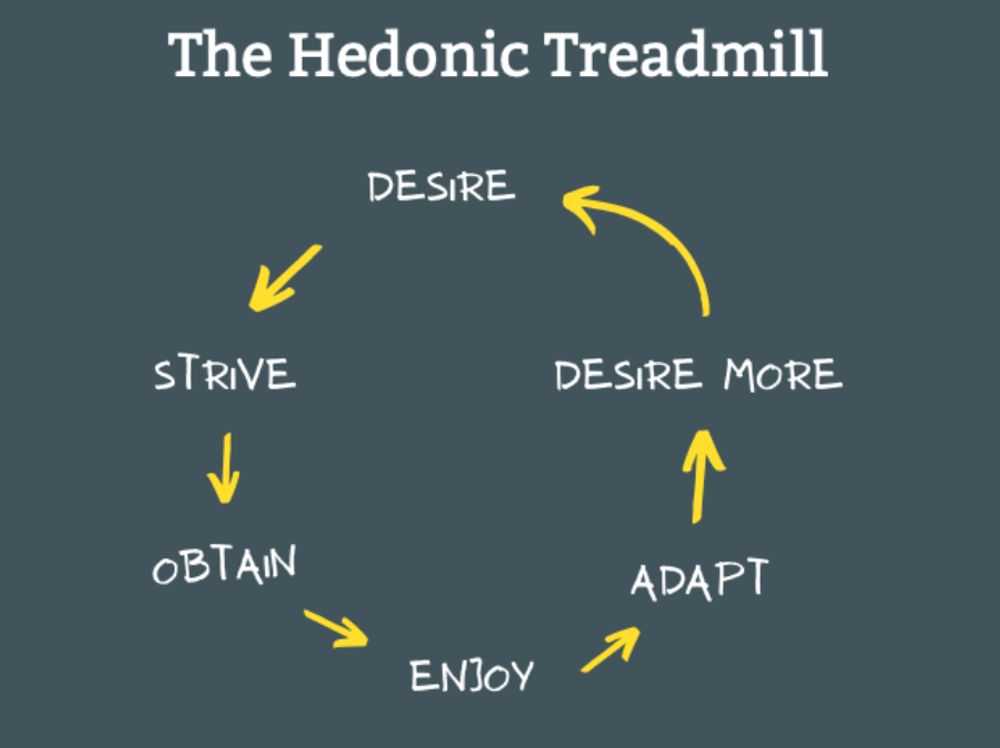

Why getting more is not enough?
Imagine you say this amazing smartphone released by the X company. It has 12 gigs of RAM, a really huge display, a 108 megascopic camera, the latest software and tons of other futuristic features.
And you think that “ i can do so many cool things with that.” and then you start saving the money for it or even buy it on that exact day. You purchase it and bring it home, you unbox it immediately. And finally, you have it.

But wait. Just after some weeks, it does not remain exciting anymore. And you dont use majority of its features that you were so attracted to. And now, you hear rumors about the next smartphone model with additional features is about to launch next year. Your enthusiasm gets attracted to that unreleased model.
Now, not exactly by the same theme, but if you have experienced something alike, you also have experienced the Hedonic Treadmill.

This hedonic treadmill is the ability of ones level of happiness to move back to its initial state after some ups and downs due to some specific event. It is the same reason why people fall into loop of desiring more and more, no matter how much they get. It is also responsible for a joke becoming boring after hearing it more times than usual, a diet becoming unbearable when it is in routine, etc.
The immediate effect on happiness, no matter positive or negative, just fades from time to time which is also called Hedonic adaptation. It is because of this psychological tendency that some people, even after reaching their aims that they once thought would bring them more joy, eventually will find no raise in happiness level.

Some people might call it, the happiness trap, is a misconception of happiness that leads to a different path in the hope of getting more happiness. You chase, you achieve and your desires go up and then this repeats. There is a good die on this. Because humans are incredibly adaptive to the events going on around, this hedonic adaptation is more like a survival game.
On the other hand, negativity is like poor relationships, poverty, etc are harder to adapt. Because of these events being in a continuous occurence. Maybe the best way to use this is to allow it to adapt in negative events and not make it a reason to increase happiness.
















